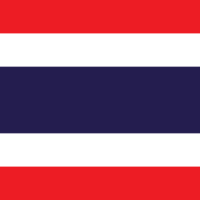Deadline: 19-Feb-22
The Centers for Disease Control and Prevention is accepting applications for the HIV Surveillance for Epidemic Control in Malawi.
As PEPFAR programs focus on use of data for fighting the HIV epidemic, it is crucial that up to date programmatic and impact data become available for evidence-based planning. Through this NOFO, it is expected that the recipient will work with the Ministry of Health (MOH) and Public Health Institute of Malawi (PHIM) to build HIV surveillance capacity by providing technical assistance (TA) and supporting generation of high-quality epidemiologic data which is collected in a manner consistent with international standards.
The purpose of this NOFO is to provide comprehensive and cost-effective capacity building and implementation of national surveillance surveys and program evaluations of CDC-supported activities in Malawi. Through this NOFO, the recipient will support the MOH and PHIM to build sustainable long-term capacity for the generation and use of surveillance data. It is anticipated that the recipient will slowly transition surveillance activities to PHIM as it becomes capacitated through this award and fully transition all the surveillance activities to PHIM by the end of the award.
Aims
This NOFO aligns with CDC Malawi’s objectives that aim at achieving the following:
- support implementation of evidence-based and high-quality HIV/AIDS programs in the country;
- generate information that monitors progress, effects, and impact of HIV interventions;
- monitor HIV epidemic trends at national, regional, and zonal levels.
Goals and Priorities
Goals and priorities include the following:
- Achieving primary prevention of HIV infection through activities such as expanding confidential counseling and testing programs linked with evidence-based behavioral change and building programs to reduce mother-to-child transmission;
- Improving the care and treatment of HIV/AIDS, sexually transmitted infections (STIs), and related opportunistic infections by improving STI management; enhancing laboratory diagnostic capacity and the care and treatment of opportunistic infections; interventions for intercurrent diseases impacting HIV infected patients including tuberculosis (TB); and initiating programs to provide anti-retroviral therapy (ART);
- Strengthening the capacity of countries to collect, use, and share surveillance data and manage national HIV/AIDS programs by expanding HIV/STI/TB surveillance programs and strengthening laboratory support for surveillance, diagnosis, treatment, disease monitoring, and HIV screening for blood safety; and
- Developing, validating, and/or evaluating public health programs to inform, improve, and target appropriate interventions, as related to the prevention, care and treatment of HIV/AIDS, TB, and opportunistic infections.
Funding Information
- Approximate Number of Awards: 1
- Average One Year Award Amount: $7,000,000
- Budget Period Length: 12 month(s)
Outcomes
- Short-Term Outcomes:
- Increased surveillance studies designed with sound scientific methods
- Increased application of study monitoring processes
- This award will have greater focus on quality implementation of surveillance surveys through rigorous and comprehensive application of standardized study monitoring tools and processes to improve integrity of surveillance and survey results
- Increased high quality surveillance studies timely implemented for timely use
- Increased targeted interventions informed by surveillance.
- Periodic analysis of surveillance data will identify program gaps that need to be adjusted during implementation of surveillance activities
- Improved timeliness for analyzing surveillance samples
- Improved capacity in different testing technologies and interpreting lab results
- Improved storage and transportation of surveillance samples to ensure sample integrity
- Improved surveillance systems at all levels
- Improved surveillance systems at national and subnational structures for outbreak response
- Increased availability of well-trained and graduated health workforce in field epidemiology
- Intermediate Outcomes:
- Improved timeliness of study reports dissemination
- Increased availability of surveillance study results for use by national program managers and stakeholders
- Increased availability of publications in peer reviewed journals
- Increased use of new laboratory technologies for HIV and COVID-19 including sequencing and genotyping technologies
- Improved detection and effective response to outbreaks
- Improved EOCs management capacity at central and district levels
- EOC management includes the establishment and strengthening of EOCs at all levels to help the country effectively respond to outbreaks
- Expanded FETP program to advanced level o Expansion of the FETP program includes the introduction of an advanced course in addition to continuing with frontline and intermediate courses
- Improved capacity of healthcare workers graduated from the FETP to effectively respond to public health threats
- Long-Term Outcomes:
- Increased use of national surveillance plan to monitor progress over time
- Increased evidence-based policies and decision making for program improvements
- Increased availability of delinked and deidentified individual level online data for third party researchers
- Decreased outsourcing and shipment of samples outside the country.
- Increased availability of new laboratory technology and services in Malawi
- Improved accuracy and integrity of lab results
- Increased capacity of PHIM to respond and control outbreaks
- Increased epidemiological workforce and expertise to sustain epidemic control
- Improved skills for publications amongst FETP residents
Eligibility Criteria
- Government Organizations:
- State governments or their bona fide agents (includes the District of Columbia)
- Local governments or their bona fide agents
- Territorial governments or their bona fide agents in the Commonwealth of Puerto Rico, the Virgin Islands, the Commonwealth of the Northern Marianna Islands, American Samoa, Guam, the Federated States of Micronesia, the Republic of the Marshall Islands, and the Republic of Palau
- State controlled institutions of higher education
- American Indian or Alaska Native tribal governments (federally recognized or state-recognized)
- Non-government Organizations
- American Indian or Alaska native tribally designated organizations
- Other
- Ministries of Health
For more information, visit https://www.grants.gov/web/grants/view-opportunity.html?oppId=334970









































